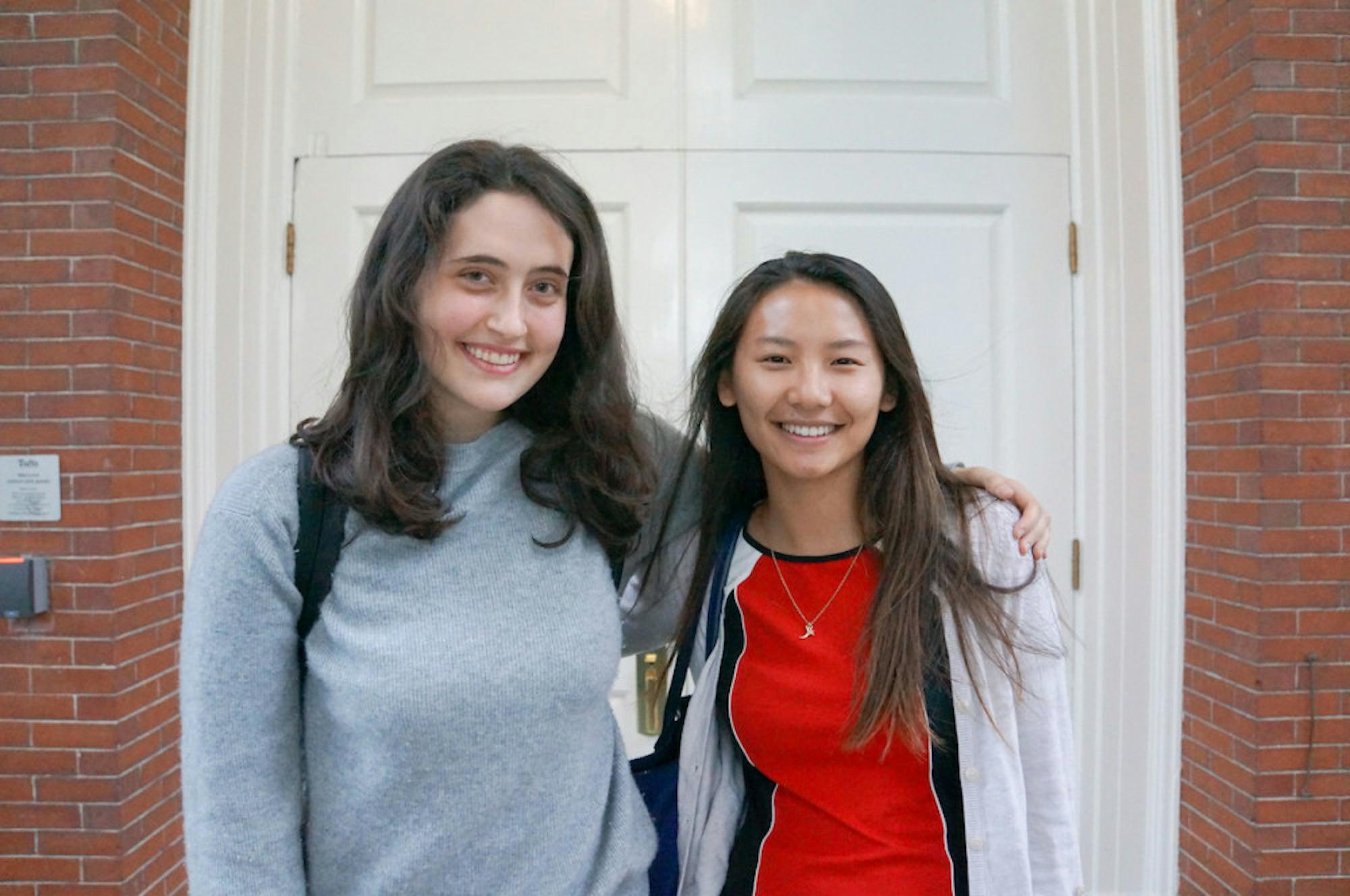Three members of Tufts Climate Action (TCA) met with university administrators and faculty members on Oct. 20 in Ballou Hall to discuss alternative tactics to divestment for promoting sustainability on campus.
The primary purpose of the meeting was to discuss the recommendations University President Anthony Monaco laid out in his 2013 Campus Sustainability Council Report, as well as how Tufts plans to put the university on track to reduce carbon emissions by 80 percent by 2050, as per a recommendation proposed in a faculty resolution passed in May, according to TCA member Shana Gallagher.
“This meeting on Thursday [was] more specifically about basically everything but divestment and how the university can respond to climate change in other ways that are more relevant to on-campus activities than something related to endowment,” Gallagher, a senior, said.
TCA members Julia Hackel, Bianca Hutner and Brian McGough represented TCA at the meeting. Administrators present included Monaco, Executive Vice President Patricia Campbell, Provost and Senior Vice President David Harris and Director of Tufts Institute of the Environment (TIE) Linda Abriola. Sociology Professor Paul Joseph, Chemistry Professor Jonathan Kenny, Civil and Environmental Engineering Associate Professor John Durant and Lecturer in Urban and Environmental and Policy and Planning Ann Rappaport also attended the meeting.
According to Hackel, a junior, the meeting, which was closed to the public, provided an opportunity to review the progress that has been made and to further discuss what each party would like to see more of on campus in terms of promoting sustainability.
“Something important that a lot of people admitted was that there were a lot of things good that we did from the report, but there still are a lot of things we haven’t done,” Hackel said. “We talked about student perspectives and what kinds of things that students want to see on campus being done.”
Hackel added that they discussed measures that could be taken to promote a culture of sustainability throughout the university.
“We talked a lot of cross-campus engagement and cross-disciplinary engagement. For example … having something like a sustainability semester where we have longer and more intensive courses of study on sustainability,” she said. “Also making [the] Tufts community more aware about the current sustainability initiatives professors are doing.”
Hutner, a junior, said that although the meeting served as a venue to discuss alternative sustainability measures, divestment is still a next step that TCA wants the university to take.
According to Executive Director of Public Relations Patrick Collins, administrators were happy to have met with students and faculty to discuss sustainability. He added that addressing the issue is a priority of Monaco’s administration.
Hutner noted that while the meeting went well, it did not bring about any substantive gains.
“There is definitely no concrete thing [that] came out of this meeting, other than general promises like ‘we will do this,’” Hutner said.
According to Hackel, the meeting ended with a consensus on reiterating the university's commitment to sustainability, and they agreed on the necessity of revamping the Campus Sustainability Council to reinvigorate its efforts and put the organization in a better place to make significant advances in sustainability.
Collins said that Monaco would be reconstituting the Campus Sustainability Council in order to undertake the next stage of the university's efforts, which involve the development of a plan to achieve carbon neutrality as soon as possible.
“Provost Harris and TIE Director Abriola will continue to work collaboratively across the university to develop the academic opportunities for teaching and research in the important area of the environment and sustainability," Collins told the Daily in an email.
Hackel said that TCA plans to work cooperatively with the university and hopes to work with the deans as lobbyists in acquiring the funds to support greater campus sustainability.
“TCA realizes … the importance of working together with the president and working together with faculty and administration on promoting the issues of sustainability in general,” she said.






